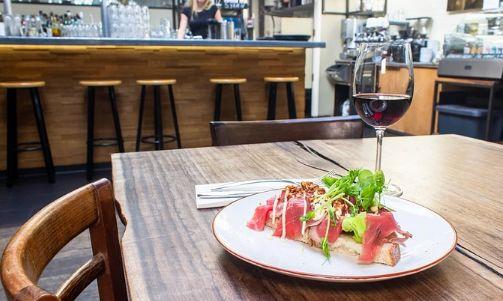
Wine, not only delicious, but also interesting
1. Why are grapes best for winemaking?
Grapes are the fruit of choice for winemaking because the ratio of water, tannins, sugar and acids contained in grapes contributes to yeast reproduction and the conversion of sugars into alcohol and carbon dioxide. Wines made from other fruits require the addition of sugar and other substances to add more complex aromas and balance the other flavors that come with fermentation.
Of course, not all grapes are suitable for winemaking, there are about 10,000 grape varieties found around the world, but only about 150 are suitable for commercial use.
2. The origin of "Cheers"
The origin of "cheers" is said to have been created by the ancient Greeks. Legend has it that the ancient Greeks noticed the fact that many organs of man could share in the pleasures of drinking wine when drinking: the nose could smell the aroma of wine, the eyes could see the color of the wine, the tongue could discern the taste of the wine, and only the ears were excluded from this enjoyment. What to do? The clever Greeks finally came up with a way to touch each other's cups before drinking, and the crisp sound of the cups came into the ears, so that the ears could also enjoy the pleasure of drinking.
3. Cabernet Sauvignon, Meilu, and Carmena all belong to the "semi-sibling relationship"
Cabernet Sauvignon, Meilu and Carmena are all star varieties with their own characteristics and excellent performance. But you know what? In terms of "genealogy", they belong to the "half-sibling" relationship. They are all descendants of Cabernet Franc, which is crossed with Sauvignon Blanc, Magdeleine Noire des Charentes, and the now-vanished Gros Cabernet grapes.
Cabernet Franc Relationship Atlas
It is precisely because of the existence of "blood relations" that these three grape varieties can be well "compatible". Cabernet Sauvignon and Merlot often appear in pairs when brewing wine, and Camina in Chile has long been mistaken for "late-ripening Merlot".
4. Marx was born as a wine estate owner, and once said that "people who don't like wine will never have a job"
When Marx is mentioned, many people think of the glory of thinkers, politicians, philosophers, revolutionaries, economists, sociologists, etc. As everyone knows, he was also a wine owner.
Born in 1818 in Rhineland-Palatinate, Germany, to a family of lawyers, Marx's father had a vineyard of about 8 hectares in Moselle am Rhein, Germany, which is said to be one of the highest latitudes in the world. Marx grew up in a wine park environment, which also made him a lifelong passion for wine, and in the long exile days, he often missed the wine of his hometown.
In a letter to his relative, François Farage, he had this to say: "Thank you from the bottom of my heart for the wine. I come from a wine region and am a vineyard owner myself, so I can appreciate and appreciate wine properly. I share martin luther's old man's belief that people who don't like wine will never come out. ”
Château Margaux
5. Most of bordeaux's chateaux were built after the 18th century
Today, many of the estates have their own magnificent castles, and although many have a history of four or five hundred years or more, the trend of building castles in wineries only began in the 18th century. At that time, some wealthy Bords lived a lavish life and wanted to show off their wealth all the time. At that time, some famous estates seized the opportunity to build magnificent castles in the wineries to show the rich wealth of the wineries, so that they made their wines a representative of a luxurious life, thus catering to the tastes of the rich circle. At the time, this marketing approach was very avant-garde and clever.
However, not all famous estates have castles, such as Le Pin because the winery is too small and the land is too expensive, so it did not build a castle, which also explains the reason why "Chateau" is not marked on the name of "Lipeng" but only "Le Pin".
One of the pleasures of wine is to explore its elegant, free and mysterious wine culture. Knowledge is cold, but enjoy it.